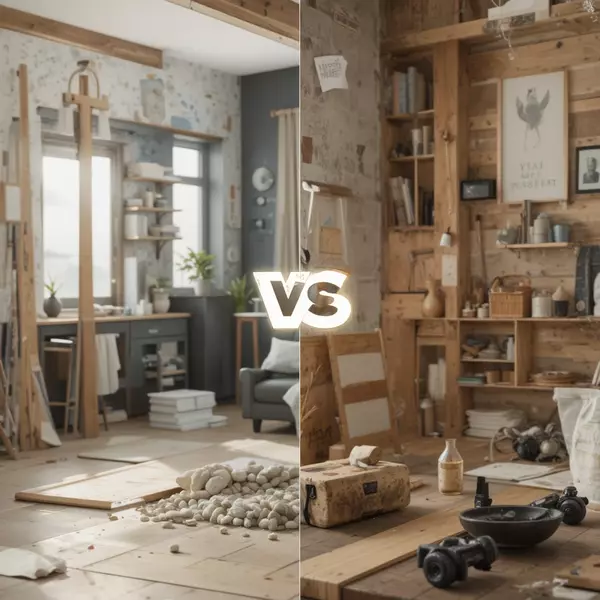Why Home Inspections Are a Must Before You Buy


The Essential Purpose: Risk Mitigation and Discovery
In the excitement of finding a dream home, it can be tempting to waive the home inspection condition to make an offer more attractive to the seller a practice known as "going firm." However, the home inspection is arguably the single most important step a buyer takes to protect their investment. Its essential purpose is to provide an objective, professional evaluation of the property's physical condition. The inspection serves as a critical risk mitigation tool, identifying existing or potential deficiencies that could lead to significant financial liabilities down the road. Treating the inspection as optional is a gamble that no serious buyer should take.
Identifying Major Structural and Mechanical Defects
The primary focus of a certified home inspector is on the house's "big-ticket" items the expensive structural and mechanical systems that are costly to repair or replace. These include the foundation, roof structure, electrical wiring, plumbing, and the Heating, Ventilation, and Air Conditioning (HVAC) systems. An inspector can identify issues like water penetration in the basement, an aging or improperly installed roof, or outdated electrical panels that pose fire risks. Catching a serious foundation crack or a furnace nearing the end of its life before closing can save the buyer tens of thousands of dollars in unexpected capital expenditures.
Providing Negotiation Leverage and Budget Clarity
The home inspection report is a powerful tool for negotiation. If the inspection reveals significant defects that were not disclosed or obvious, the buyer gains leverage to address the issues before closing. There are typically three possible outcomes: the buyer can request the seller to repair the defects before closing; the buyer can request a reduction in the sale price to cover the cost of the repairs; or, if the defects are too severe (e.g., structural failure), the buyer has the contractual right to walk away from the deal and retrieve their deposit. This report ensures that the final price reflects the true condition and future maintenance requirements of the property.
Uncovering Hidden Maintenance and Safety Issues
Beyond major systems, the inspection uncovers countless smaller but important maintenance and safety concerns that are often hidden by furnishings or fresh paint. These can include poor ventilation in attics, which leads to moisture and mold; improper grading around the foundation, which directs water into the basement; or poorly sealed windows and doors that lead to high energy costs. While minor issues may not be deal-breakers, they contribute to the buyer's long-term maintenance schedule and budget. The report serves as a detailed checklist for immediate and future repairs, giving the new homeowner a clear roadmap for property upkeep.
Protecting Insurance and Financing Requirements
In certain instances, failing to conduct an inspection can impact a buyer's ability to secure home insurance or finalize financing. Insurance companies may require an inspection, especially for older homes, to ensure the property is free of major risks like old knob-and-tube wiring or galvanized plumbing before issuing a policy. Similarly, a lender, particularly for a high-ratio mortgage, may review the property's condition after the appraisal and request an inspection to ensure the asset securing their loan is sound. Without a full inspection, a buyer risks running into unexpected hurdles that could invalidate their contract or financing commitment on closing day.
Empowering the Buyer with Knowledge and Confidence
Ultimately, the home inspection provides the buyer with invaluable knowledge and confidence. It allows them to transition from making an emotional purchase to making an informed investment decision. The inspector acts as an impartial educator, walking the client through the home's systems and explaining their functionality, limitations, and expected lifespan. Even if the inspection is perfect, the buyer gains peace of mind. By spending a few hundred dollars on an inspection, the buyer is purchasing certainty, clarity, and the assurance that they are fully aware of what they are inheriting, making it an indispensable part of the home-buying process.
Categories
- All Blogs (106)
- Buy Home (46)
- Buy Property (46)
- Easiest Tips (46)
- Home Buying Tips and Guides (11)
- Home Improvement & Maintenance (10)
- Home Selling Strategies (10)
- Market Insights & Trends (9)
- Mortgage (46)
- Ottawa Neighbourhoods & Local Living (10)
- Real Estate (46)
- Real Estate Investing (10)
- Renting Property (46)
- Selling Property (46)
Recent Posts











